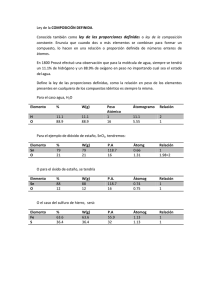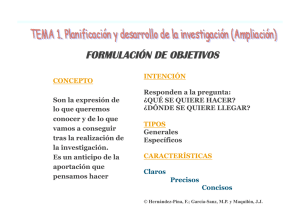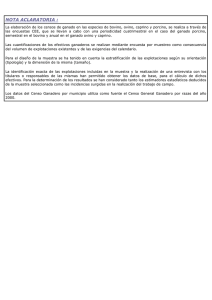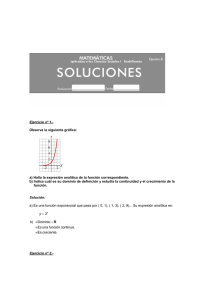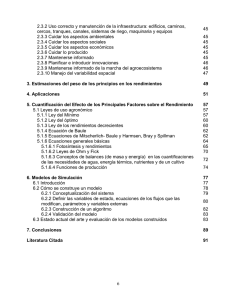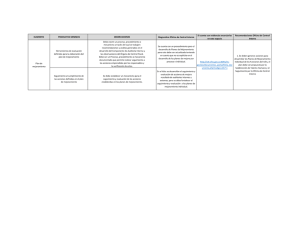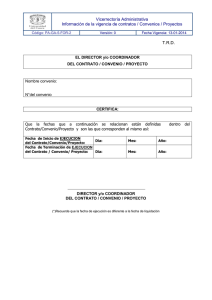apéndice c: teoremas sobre cuantificaciones
Anuncio
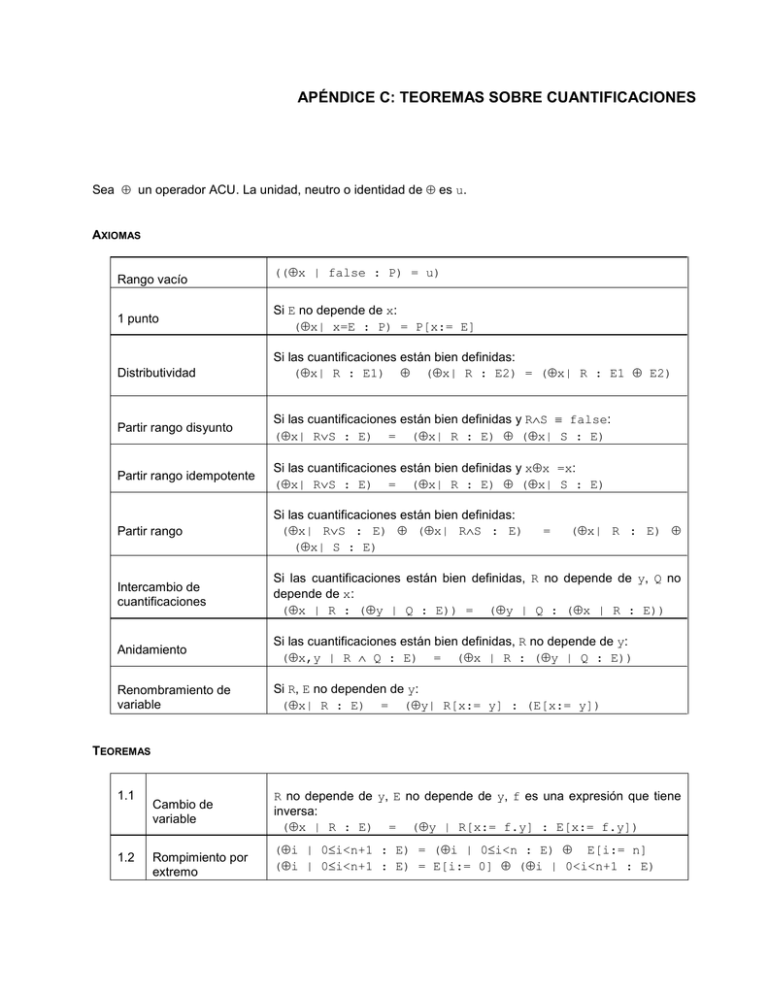
APÉNDICE C: TEOREMAS SOBRE CUANTIFICACIONES Sea ⊕ un operador ACU. La unidad, neutro o identidad de ⊕ es u. AXIOMAS Rango vacío 1 punto Distributividad ((⊕x | false : P) = u) Si E no depende de x: (⊕x| x=E : P) = P[x:= E] Si las cuantificaciones están bien definidas: (⊕x| R : E1) ⊕ (⊕x| R : E2) = (⊕x| R : E1 ⊕ E2) Partir rango disyunto Si las cuantificaciones están bien definidas y R∧S ≡ false: (⊕x| R∨S : E) = (⊕x| R : E) ⊕ (⊕x| S : E) Partir rango idempotente Si las cuantificaciones están bien definidas y x⊕x =x: (⊕x| R∨S : E) = (⊕x| R : E) ⊕ (⊕x| S : E) Partir rango Si las cuantificaciones están bien definidas: (⊕x| R∨S : E) ⊕ (⊕x| R∧S : E) (⊕x| S : E) Intercambio de cuantificaciones Si las cuantificaciones están bien definidas, R no depende de y, Q no depende de x: (⊕x | R : (⊕y | Q : E)) = (⊕y | Q : (⊕x | R : E)) Anidamiento Si las cuantificaciones están bien definidas, R no depende de y: (⊕x,y | R ∧ Q : E) = (⊕x | R : (⊕y | Q : E)) Renombramiento de variable Si R, E no dependen de y: (⊕x| R : E) = (⊕y| R[x:= y] : (E[x:= y]) = (⊕x| R : E) ⊕ TEOREMAS 1.1 1.2 Cambio de variable Rompimiento por extremo R no depende de y, E no depende de y, f es una expresión que tiene inversa: (⊕x | R : E) = (⊕y | R[x:= f.y] : E[x:= f.y]) (⊕i | 0≤i<n+1 : E) = (⊕i | 0≤i<n : E) ⊕ E[i:= n] (⊕i | 0≤i<n+1 : E) = E[i:= 0] ⊕ (⊕i | 0<i<n+1 : E)
